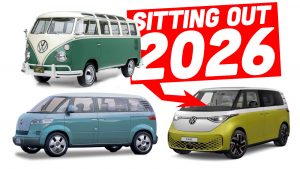So twice this week, I’ve shown you cars that many of you liked – except for the price. And maybe they were a little expensive for what they were. But since the typical advice is to buy the best version of something you can afford, rather than buying a cheap one to fix up, I thought we’d see what adding a grand or two on top of those other cars’ prices could get us.
The IROC Camaro we looked at yesterday was one such overpriced car. The value in that car, I think, lies in its originality; aside from being parked outside, it has led an easy life, and if not for the rust, it would probably cost quite a lot more. And it’s equipped pretty much exactly how I would have ordered one back in 1988 if I could have.
But that rust … yeah, it does give me pause. Though I have to say, less pause than a haphazardly-modified and hastily-repaired Mustang. We had kind of a short day yesterday, so the vote tally is low, but as of this writing, the Mustang has a slight edge, so I’ll call it the winner. It’s not my choice, however.

Seventeenth-century philosopher Baltasar Gracián once wrote that it is “better to be cheated by the price than the merchandise.” A bargain is only a bargain if it actually costs you less in the long run; usually, it’s better to spend more up front than to incur extra costs down the road, even if the original price is a little steep. So today, we’re going to spend just a little more fake internet money than it would take to buy either that rusty but original Camaro, or the probably one-of-a-kind Corsica. These cars are a little older, but a hell of a lot nicer, and probably better to drive. Let’s check them out.
1973 Mercury Capri – $7,250

Engine/drivetrain: 2.6-liter overhead valve V6, four-speed manual, RWD
Location: Oak Park, CA
Odometer reading: 126,000 miles
Operational status: Runs and drives great
The Ford Mustang was a huge success in America, but it wasn’t really designed for anywhere else. American cars are typically too big for European roads, and too inefficient for European fuel prices. So in 1969, Ford of Europe brought out its own Mustang equivalent, the Capri. Like the Mustang, it was based on a sedan platform, in this case the Ford Cortina. But while the Mustang wasn’t suitable for Europe, Ford thought the Capri might do well in America as a smaller alternative to the Mustang, and sold it here through Lincoln-Mercury dealerships.

The Capri was offered with a whole bunch of different engines in Europe, but horsepower-hungry America, as usual, stuck to the high end of the range. This one is powered by a 2.6 liter version of Ford’s Cologne V6, in this case paired with a four-speed manual. It has a little hotter camshaft than stock, and is topped by a brand-new Weber carb. The car also has all new brakes, suspension bushings, tires, and steering rack. It has a bunch of spare parts in the trunk as well, sitting alongside – get this – a fuel cell.

The inside looks good, but there are covers on the seats, and I wouldn’t expect miracles under them. Then again, the door cards and carpet look good, so maybe the seat covers are there for protection. One thing I personally would change, however, is that steering wheel. Man, that thing is ugly. A nice Momo or Nardi wheel would transform the looks of this interior; just hang on to the original in case you ever want to sell the car.

It’s a little dull and faded outside, but I bet it would shine back up nicely with a little elbow grease. There’s no rust on it anywhere that I can see, and all the trim looks intact. I’m not a fan of the aftermarket wheels, though; these originally came with Rostyle stamped steel wheels, and it looks wrong without them. And I could do without the tinted windows as well, though I understand why someone would want them in sunny California, especially with a black interior and no air conditioning.
1982 BMW 320iS – $6,200

Engine/drivetrain: 1.8-liter overhead cam inline 4, five-speed manual, RWD
Location: Los Angeles, CA
Odometer reading: 246,000 miles
Operational status: Runs and drives great
I’ve heard that being the middle child isn’t easy. I wouldn’t know myself; I’m the older of two. But I do feel sorry for the BMW E21 chassis, considering how much more famous both its older (2002) and younger (E30) siblings are. For years, while 2002 values have soared, followed shortly by the E30, E21 prices have stayed low, and I’ve never understood quite why. It’s a sharp-looking car, much like the rest of BMW’s line at the time, and while it’s not what you’d call fast, it is awfully nice to drive.

Part of it may just be the time during which it was produced; the malaise era didn’t hit European cars nearly as hard as domestic makes, but it didn’t leave them alone either. The US-market 320i came with a 2.0 liter version of BMW’s M10 four-cylinder engine, later downsized to 1.8 liters like this one. It makes only 101 horsepower, and takes eleven seconds to get to 60 MPH, which sounds pathetic now, but was actually kinda quick for 1982. It has nearly a quarter of a million miles on it, but it has recently had a bunch of service and repairs, and the seller says it runs great.

This is the rare 320iS model, which includes some extra goodies like Recaro seats, a leather-wrapped steering wheel, some suspension tweaks, and a limited-slip rear axle – but deletes the factory air conditioning. An A/C compressor from 1982 probably eats up ten horsepower when it’s running, so maybe it’s for the best. There’s some wear and tear inside, as you would expect from the mileage, but it’s totally presentable.

The paint isn’t great on this one either, but again, there’s no rust, and some time with a buffing wheel would be worthwhile. There’s not much you can do about the ginormous 5 MPH bumpers, unless you find and import a set of European bumpers, which is probably not worth it. The BBS wheels are original; they’re part of the S package.
These cars both hit that sweet spot for classic weekend toys that I really like: good-looking, unusual, but not especially valuable or rare, and therefore not too expensive. And they’re both in good enough condition that you could just start enjoying them and keep them up – they’re not projects in any sense. Which would you choose: the German-built baby Mustang, or the unloved 3 Series?









Capri…
I’ve owned about 15 BMWs and about 50+ cars. Multiple E30, E28, E24, E34, M5s, Alpina cars, and newer BMWs that I don’t know the nomenclature. I had a friend who had a 320iS in high school. It was cool at the time but dog slow and thinking back, it’s like the E36…..never want one.
Never even been in a Capri which is crazy since I was born in 1971. So, ima choose that. And I know of the affection for them.